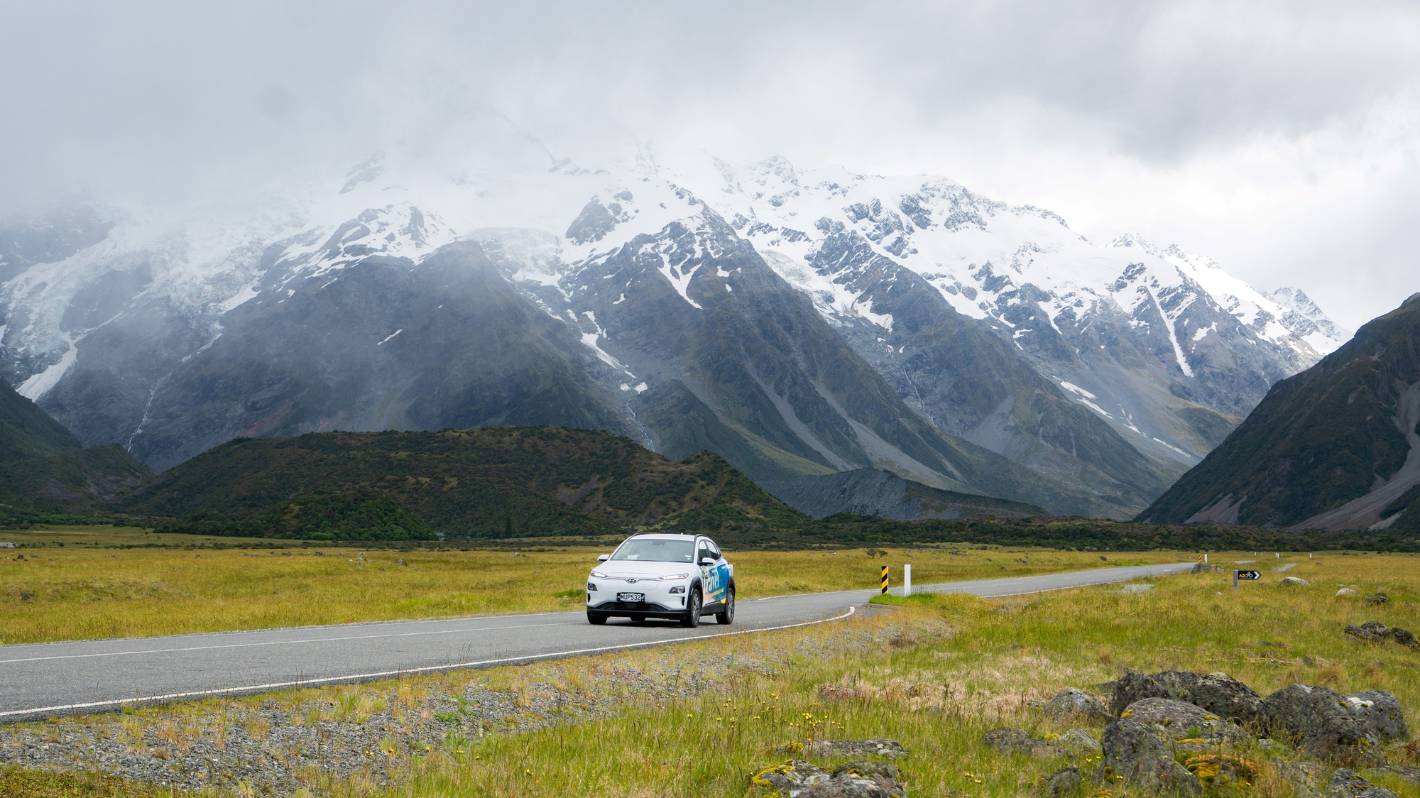All of New Zealand will be spending the upcoming long weekend for Waitangi Day under the red setting of the traffic light system, as the country deals with the Omicron outbreak.
While there are no restrictions to domestic travel under the red setting – you can still move around the country – many of us will be reconsidering our holiday plans, especially those who are still to receive their booster shot.
But if you are still wanting to head away, there are ways you can modify your plans to make them safer, and reduce your chances of coming into contact with the virus.
A road trip will probably be your safest option this Waitangi weekend.
Here are some tips for low-risk travel this Waitangi weekend.
READ MORE:
* Covid-19: Fly at your own risk, and make sure you have a self-isolation plan
* Travel and Omicron: Should I cancel my trip?
* Travel and Omicron: What to pack if you’re travelling out of town
Mask up
Face masks are one of the key tools in protecting yourself and others from the virus. Many of us have become accustomed to wearing our reusable cloth masks, but with a highly transmissible variant like Omicron, experts say greater protection is offered by N95 or P2 masks.
These should be available at pharmacies and hardware stores, but if you’re struggling to get hold of one, a surgical mask would be your next best option.
The main thing with both options is to ensure they fit correctly, with a tight seal against your face. Check out this guide to fitting your mask here.
Drive to your destination
Travelling in a personal vehicle is definitely going to be your safest option. As of Wednesday afternoon, 15 flights and two intercity bus trips have been listed as “close contact” locations of interest.
Throughout the pandemic, there has been some debate around the level of risk on flights – which have superior ventilation systems to other types of public transport – but experts agree the risk has increased with Omicron.
Covid-19 modeller Michael Plank previously told Stuff when there were high case numbers in the community, there would be a significant risk of catching Covid-19 on a flight because of the large number of people in a confined space.
There are no capacity limits on flights – and A320 planes, used on several of Air New Zealand’s domestic routes, can seat up to 171 passengers.
If you do fly, be sure to keep your face mask on throughout the flight (and don’t wear a single-layer cloth mask like the one shown – go for an N95 or a surgical mask).
“Masks reduce this risk but won’t get rid of it altogether,” Plank said.
As well as lessening your chance of exposure, travelling by car also gives you a way to get home, should you end up testing positive for Covid-19.
The Ministry of Health says you are able to return home to self-isolate if you or someone you are travelling with is able to drive, using the most direct route possible, with minimal stops.
Stay in private accommodation
Under the red setting, accommodation is able to remain open without any limits on capacity.
Most hotels and campgrounds have shared spaces, so to reduce your chances of coming into contact with the virus, it’s a good idea to stay in private accommodation with just your family bubble, especially if you’re travelling with children who are not yet fully vaccinated.
Many properties listed on websites like Airbnb and Bachcare offer contactless check-in and check-out, so you won’t need to interact with anyone during your stay.
Get outdoors
While you can still transmit or catch Covid-19 outside, your chances are greatly reduced compared to enclosed, indoor areas. So where possible, plan your long weekend around outdoor activities – think walks and tramps, golf, fishing, swimming and kayaking.
Picnics are a safe activity you can enjoy over the long weekend.
If you’re using a public toilet or changing room, be sure to wear your face mask, even in a single-person cubicle, as the virus may be lingering in the air.
Al fresco dining is your friend. Try to dine at cafés, restaurants and bars that have outdoor spaces. If you have to be indoors, try to avoid peak dining times when the restaurant will be most crowded (although under red, hospitality venues are limited to 100 people).
Do your best to keep a safe distance from people you don’t know while out and about.
Be prepared to change your plans
If you should find yourself with a sore or scratchy throat, runny nose, or any other Covid-19 symptoms before you head away, the Ministry of Health is urging you not to travel.
Instead, you should get a test and isolate at home until a negative result is returned.
If you should experience any of these symptoms while you’re away, you should also arrange to get a test and follow the isolation advice.
The Ministry of Health does have alternative accommodation options for those who have travelled elsewhere, but warns these are limited, and as case numbers rise, this accommodation will be focused on those with high needs. So be prepared to have to pay to extend your accommodation.
Unlock the world’s wonders with unforgettable journeys tailored just for you! Whether you crave sun-kissed beaches, thrilling adventures, or rich cultural escapes, your dream destination awaits. Enjoy seamless travel with expert tips, exclusive deals, and handpicked experiences that Turn Every Trip into a lifetime memory.










